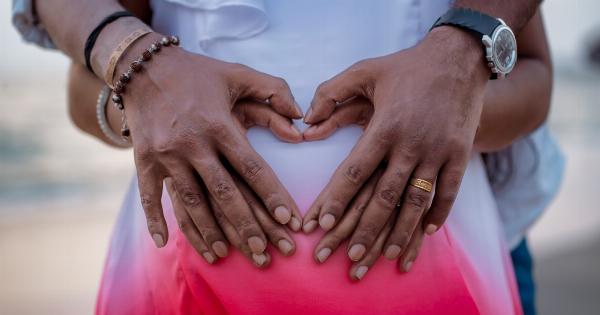Colon cancer, also known as colorectal cancer, is one of the most common types of cancer worldwide. It occurs when malignant cells develop in the colon or rectum, which are part of the large intestine.
Colon cancer symptoms can be subtle and often go unrecognized. Knowing the symptoms of colon cancer can help women detect the disease early and seek treatment before it spreads. Here’s what women need to know about colon cancer symptoms:.
1. Change in Bowel Habits
If you notice a persistent change in your bowel habits, it may be a sign of colon cancer. This can include constipation, diarrhea, or a change in the texture or shape of your stool.
If these changes persist for more than a few days, it’s important to see a doctor.
2. Blood in Stool
One of the most common signs of colon cancer is blood in the stool. This can be a sign of hemorrhoids or other conditions, but it’s important to get checked by a doctor to rule out colon cancer.
The blood may be bright red or dark, and it can be present on the surface of the stool or mixed in with the stool.
3. Abdominal Pain
Abdominal pain or cramping may be a sign of colon cancer, especially if it’s persistent and accompanied by other symptoms. It may be felt in the lower abdomen or throughout the stomach.
If you’re experiencing persistent abdominal pain, it’s important to speak with a doctor.
4. Fatigue
If you’re constantly feeling tired and low on energy, it may be a sign of colon cancer. This is especially true if the fatigue is persistent and not relieved with rest. Fatigue can be a sign that the cancer has spread to other parts of the body.
5. Unexplained Weight Loss
Unexplained weight loss can be a sign of many different conditions, including colon cancer. If you’re losing weight without trying or making any changes to your diet or exercise routine, it’s important to speak with a doctor.
6. Nausea and vomiting
Nausea and vomiting can be a sign of colon cancer, especially if they’re accompanied by other symptoms like abdominal pain or bloating.
If you’re experiencing persistent nausea or vomiting, it’s important to get checked out by a doctor.
7. Constipation or Diarrhea
Constipation or diarrhea can be early signs of colon cancer, especially if they’re accompanied by other symptoms. If you experience persistent constipation or diarrhea, it’s important to speak with a doctor.
8. Gas and Bloating
Gas and bloating can be a sign of colon cancer, especially if they’re persistent and accompanied by other symptoms like abdominal pain or changes in bowel habits.
If you’re experiencing persistent gas or bloating, it’s important to get checked out by a doctor.
9. Iron Deficiency Anemia
Iron deficiency anemia can be a sign of colon cancer, especially if it’s persistent and not relieved with iron supplements.
Anemia can cause fatigue, shortness of breath, and other symptoms, so it’s important to speak with a doctor if you’re experiencing these symptoms along with anemia.
10. Family History of Colon Cancer
Having a family history of colon cancer can increase your risk of developing the disease yourself.
If you have a family history of colon cancer, it’s important to speak with a doctor about getting screened for the disease earlier and more frequently.
Recognizing the symptoms of colon cancer is important for early detection and treatment. If you’re experiencing any of these symptoms, be sure to speak with your doctor as soon as possible.





























